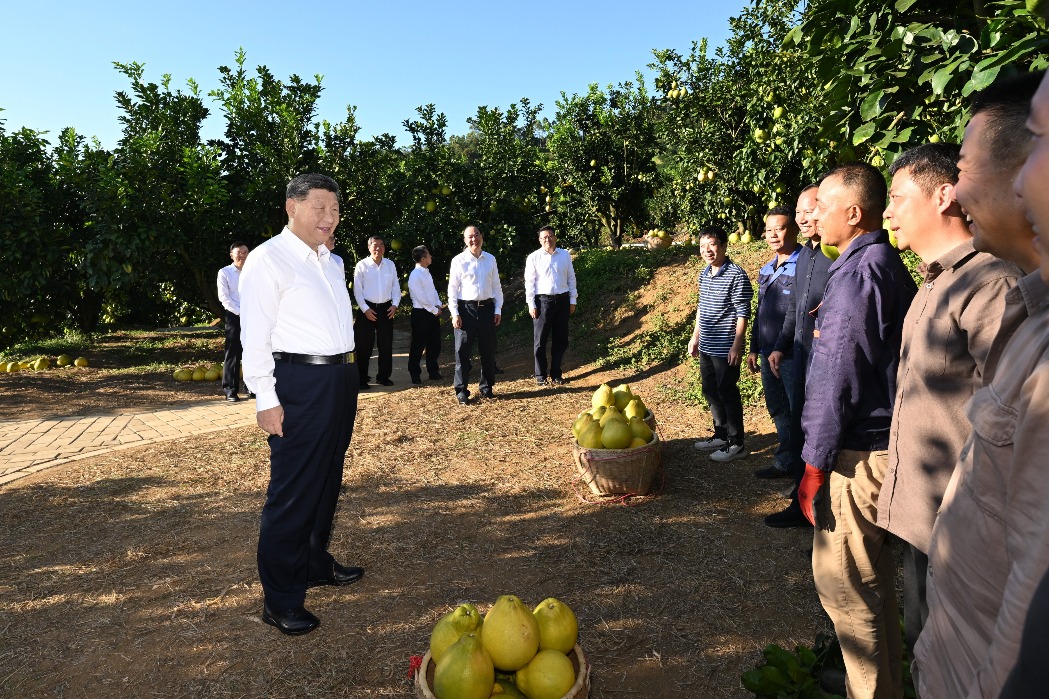Call to protect women from online violence


The internet has revolutionized our lives, offering unprecedented opportunities for connection, learning and empowerment. Yet the digital revolution has a sinister side: the growing threat of technology-facilitated gender-based violence. A recent global study found that nearly 60 percent of women had experienced one or more forms of online harm. For millions of women and girls, digital spaces are fraught with risks that echo and amplify the violence they already face offline.
The statistics are alarming. Globally, almost one in three women has experienced physical or sexual violence in her lifetime. In 2022, femicide rates reached a 20-year high. Online, women and girls face harassment, stalking, image-based abuse and threats of violence — attacks that often spill into the real world with devastating consequences.
During humanitarian crises, these risks escalate further as traffickers exploit digital technologies to deceive, control and exploit vulnerable women and girls, leading to extortion, identity theft and sexual slavery. The roots of these vulnerabilities lie in the digital gender divide, low digital literacy and widespread misinformation.
Take Amara, a young woman from Southeast Asia who lost her livelihood when a typhoon devastated her community. Desperate for work, she turned to social media, where traffickers posing as recruiters promised quick employment abroad. Instead, Amara faced blackmail, identity fraud and physical threats to her family. With help from a local support network, she escaped and began to rebuild her life. Amara's story highlights the urgent need for stronger digital protection for women and girls, especially during crises.
Adolescent girls are particularly vulnerable to online violence, as are women who rely upon digital platforms for their professional lives. The risk of abuse is multiplied for activists, women of color and women with disabilities. Online gender-based violence can cost women their careers, their health, and even their lives. Yet when violence and hate is perpetrated digitally, it is too often dismissed.
Digital spaces have worryingly become a critical battleground for gender equality, where those advocating for change are often targeted. This year's 16 Days of Activism against Gender-Based Violence, under the theme "Towards Beijing +30: Unite to End Violence Against Women and Girls", calls for concrete action to tackle this escalating crisis. Beijing +30 marks the 30th year of the 1995 Beijing Declaration, a landmark framework for achieving gender equality where progress has been made but critical barriers exist and, in some cases, gains are being reversed.
In the Asia-Pacific region, where the digital economy is rapidly expanding, our collective responsibility is clear: digital spaces must empower, not endanger. A recent study by the UNFPA, the United Nations sexual and reproductive health agency and the University of Melbourne highlights the prevalence of online gender-based violence in the region. Women and girls are disproportionately targeted, with barriers such as low digital literacy and stigma discouraging survivors from seeking help. We cannot accept another layer of disadvantage and discrimination against women and girls.
The good news is that we know what needs to be done. We must strengthen accountability for tech platforms. Tech companies must build on initial steps to embed ethical guidelines and safety-by-design principles into their systems. Robust oversight is needed to ensure artificial intelligence and data tools are developed responsibly, with clear reporting mechanisms to protect users from abuse.
We must also take measures to close the digital gender divide. Teaching women and girls digital literacy skills is essential to enable them to navigate online spaces safely. Educational campaigns can counter harmful stereotypes and empower women and girls to participate fully in the digital world.
Finally, we must ensure survivor-centered support. Tailored responses are crucial, especially in humanitarian contexts, to address safety needs both online and offline. This requires stronger laws, effective programs and a commitment to ensure that every woman knows she is not to blame, and that there are pathways to justice and healing. Holding perpetrators accountable through robust legal frameworks is essential to deter abuse and secure justice for survivors.
Data are key to informing effective policies. By conducting research and pooling resources, countries can develop context-specific solutions that address local realities. At the recent Asia-Pacific Beijing +30 Inter-Governmental Forum, countries reaffirmed their commitment to create safer digital spaces. Investments such as $15 million from the United States and $20 million from Australia to combat online gender-based violence underscore the urgency of this issue.
The Asia-Pacific Ministerial Conference on the Beijing+30 review was held recently in Bangkok, where governments, civil society, the youth, the private sector, UN entities and experts recommitted to intensify efforts, uphold rights and combat gender-based violence. But we need to redouble our efforts — and do so urgently.
Online gender-based violence is not just a technological issue. It reflects deeper societal inequalities. Addressing it requires transforming harmful gender norms, engaging young people in prevention, and ensuring survivors have access to justice and healing.
On this year's 16 Days of Activism against gender-based violence, I call on governments, tech companies and civil society to act now. We must hold perpetrators accountable, accelerate survivor-centered and country-tailored national strategies, and increase funding for women's rights movements.
Amara's story is a reminder of what is at stake. A safer, more resilient digital world is possible, but it requires a coordinated effort and adequate resources to build. Let us use our voices and platforms to push for change, transforming the internet from a place of risk to one of empowerment. Together, we can ensure that every woman and girl can engage online without fear.
The author is Asia-Pacific regional director of United Nations Population Fund (UNFPA).
The views don't necessarily reflect those of China Daily.


































